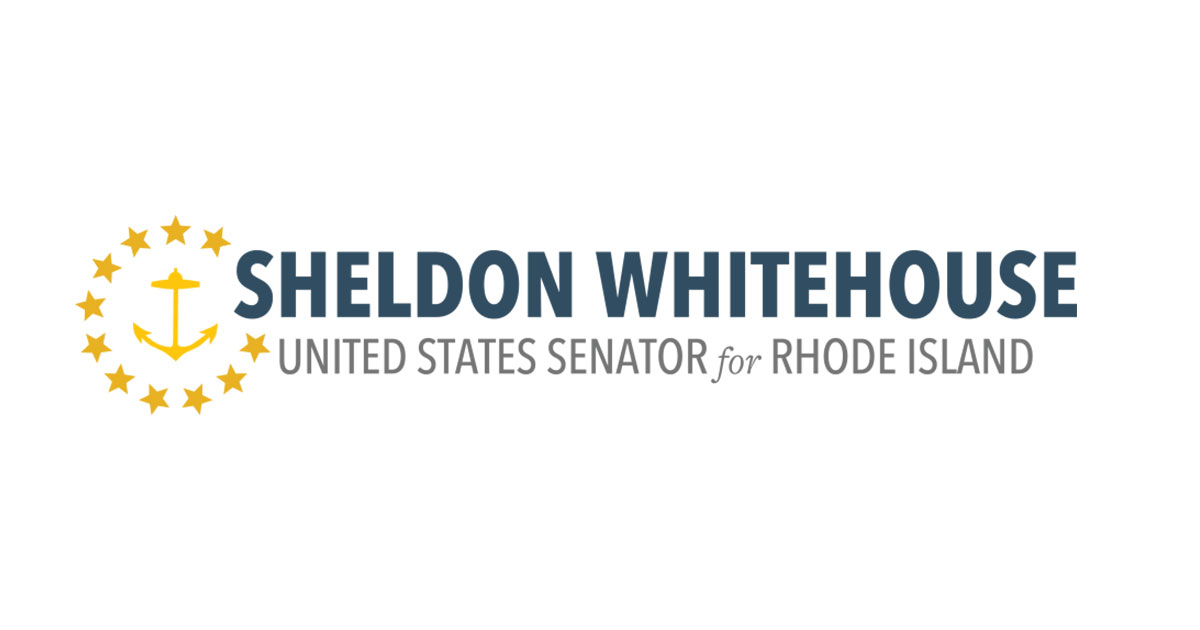Source: United States Senator for Rhode Island Sheldon Whitehouse
Legislation will ensure drug financing is part of the national drug control strategy, better coordinate law enforcement activity, and help states address money laundering by drug traffickers
Washington, DC – Senator Sheldon Whitehouse (D-RI), Chairman of the Senate Caucus on International Narcotics Control, and Senator Maggie Hassan (D-NH) have introduced as an amendment to the national defense bill the Not Allowing Revenue for Criminal Organizations (NARCO) Act. The legislation would take a number of steps to strengthen and coordinate the federal government’s response to drug financing schemes, and authorize assistance to states to tackle money laundering related to the illicit narcotics trade.
“Traffickers need to move money in order to move drugs. That’s why our national drug control strategy needs a top-to-bottom plan for addressing traffickers’ financial networks,” said Senator Whitehouse. “This legislation will help federal authorities synchronize efforts to tackle traffickers’ financial networks, including a thorough review of enforcement efforts and help for states to address complex money laundering schemes. Those are important steps in America’s work to dismantle sophisticated drug financing.”
“Cracking down on money laundering is key to stopping drug cartels,” Senator Hassan said. “This commonsense measure will make sure we track the money behind cartels’ drug operations and ensure that states have the resources they need to go after the cartels that are pushing addictive and lethal drugs into our communities. I will continue working with Senator Whitehouse to get this important measure into law.”
In the face of increasingly complex financial schemes by drug trafficking organizations, the federal government’s current national drug control strategy does not explicitly address illicit finance. There is no centralized repository for information on the investigation and prosecution of drug trafficking organizations, nor for how much money the government finds and seizes from traffickers. And there is only a patchwork of often outdated state and local laws to address complicated money laundering practices deployed by drug trafficking organizations. These factors combine to hinder law enforcement’s pursuit of drug money.
The NARCO Act takes a number of steps to address illicit financing by drug trafficking organizations.
- It would amend the definition of “supply reduction” in the Office of National Drug Control Policy’s (ONDCP) authorization to include activities to map, track, dismantle and disrupt the financial networks of drug trafficking organizations. This change will require ONDCP to explicitly address illicit finance in its national drug control strategy.
- It would require Government Accountability Office (GAO) to report on the number and status of investigations and prosecutions of drug trafficking organizations and the amount of money the federal government seizes from drug traffickers annually. It also requires ONDCP to include this information in its national drug control strategy to the greatest extent practicable.
- It would authorize a new Department of Justice grant program to develop model state laws to address money laundering practices related to the manufacture, sale, or trafficking of illicit drugs. This provision is meant to address the criticism levied by Financial Action Task Force—a noted intergovernmental organization focusing on money laundering and terrorism financing—in its 2016 Mutual Country Evaluation Report of the United States that there is a lack of uniformity in state anti-money laundering laws.
- It would also authorize $80 million for Justice Department to provide training, technical assistance, and mentorship to the 81 major money laundering jurisdictions abroad, as designated by the Foreign Assistance Act. This would build on the Justice Department’s existing Office of Overseas Prosecutorial Development, Assistance and Training (OPDAT) program and International Criminal Investigative Training Assistance Program (ICITAP), and provide direct funding to the Department for their work. These programs are currently funded through interagency agreements between the Departments of State, Defense, and Justice, and are not required to focus explicitly on anti-money laundering efforts.
Whitehouse has led the charge to strengthen America’s hand against international narcotics trafficking, corruption, and kleptocracy. Last year, Congress passed bipartisan provisions—based on Whitehouse’s TITLE Act—included in the 2020 National Defense Authorization Act to help prevent international criminals and foreign enemies from hiding assets from law enforcement and tax authorities. In the Helsinki Commission and Judiciary Committee, Senator Whitehouse has advanced legislation cracking down on kleptocracy and corruption at home and abroad. First with Senator John McCain (R-AZ) and then with Senator Lindsey Graham (R-SC), Whitehouse has served since 2013 as the Democratic lead for the annual congressional delegation to the Munich Security Conference.
